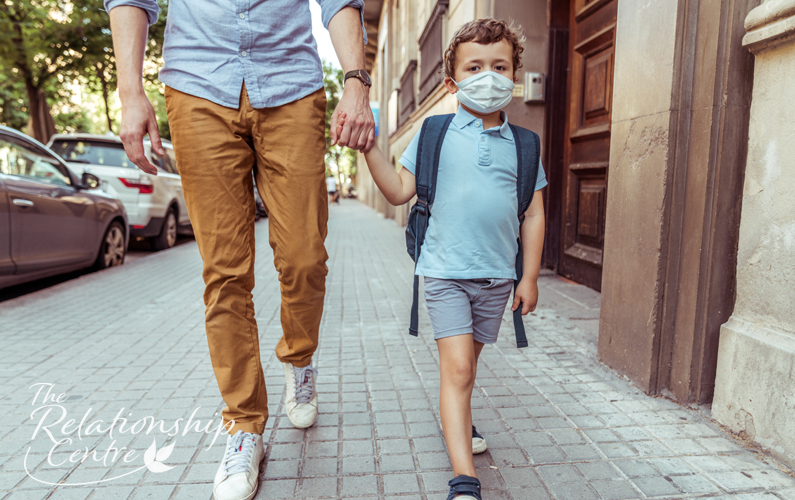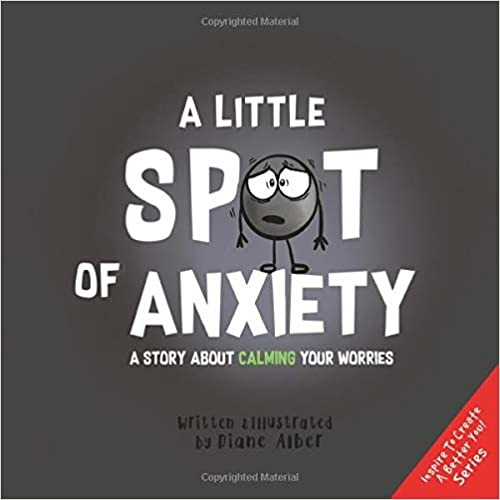All children feel anxious at one time or another. But when anxiety gets in the way every day, children get irritable or even angry. They are more prone to meltdowns or tantrums. Returning to school when everything looks so different presents a “perfect storm” for many kids to experience anxiety.
10 Tips to Reduce Your Child’s Stress & Anxiety
To help your children navigate this new landscape which may trigger increased stress and anxiety, here are some strategies that may help.
- Encourage your child to face their fears, and not run away from them. We naturally want to avoid what makes us feel afraid, however, that inadvertently maintains, and even increases the anxiety. Instead, if a child faces their fear, they learn that over a short period of time, usually 20-45 minutes, the anxiety naturally diminishes on its own.
- Focus on positives. Many anxious children get lost in negative thoughts and self-criticism. Help them remember the more positive aspects of themselves and the situation they are facing.
- Schedule relaxing activities. Children need time to relax and be kids. Sports, while they can be fun, can become more about success adding another element of stress. Make time for your child to engage in play purely for fun. Have a tea party, play a game, do yoga, have a dance party or just be silly.
- Model approach behaviour, self-care, and positive thinking. Your child will do what you do. If you avoid stressful situations, so will your child. If you face your fears, so will your child. If you take care of yourself and practice positive self-talk, your child will also learn these important coping skills. As you think about your child’s psychological well-being, also think of your own as it provides a powerful model for your child to follow.
- Encourage good sleep habits. Encourage a set bedtime for your children and stick to it, even on weekends. Allow 45-60 minutes for a pre-bedtime routine to help your children wind down from the activities of the day to the relaxed state necessary to fall asleep.
- Reward your child’s brave behaviour. If your child faces a fear, reward this with a hug, praise, and words of encouragement to promote this ongoing behaviour.
- Practice relaxation exercises with your child. Your child will benefit from some simple relaxation techniques, but they will need your help to do them. During a time of stress or anxiety, ask your child to take some slow deep breaths and do it with them so they can match your pace. Or ask your child to close their eyes and picture doing something relaxing, like laying in the backyard hammock. Ask them to imagine the sounds, smells and sensations associated with this activity. Help them have the sensation of this experience through this visualization exercise.
- Encourage your child to express their anxiety. Although it may be tempting to tell your child that they are fine, it will not help them learn to manage their anxiety. They need to name it, share it, and be supported to find ways to handle it. You are their biggest support system and talking about their anxiety with you will help tame it.
- Listen to their feelings and help them problem solve. Once you have acknowledged and validated your child’s feelings you can then help them look for solutions. This is not you solving the problem for them, rather helping them to identify possible solutions. And if they have difficulty generating possible solutions, share a few ideas and encourage them to pick the one they feel would work best.
- Stay calm. Children look to their parents to determine how to react in situations. Children of all ages pick up on their parent’s emotions and resonate with them. If you are anxious, it is more likely your child will become anxious. So, when you want to help your child with their anxiety, also be aware of your own. Slow your speech pattern, take a few deep breaths and practice keeping your facial expressions in a calmer state.
Living with anxiety is difficult. And watching your child experience it is heart-breaking. With your help and lots of practice, your child will be able to learn how to lower their anxiety level and cope with anxiety-provoking situations. The key is repetition so continue to help them practice. And if they need more support, we have therapists who are experts at helping kids conquer anxiety – give us a call to book a session.
A Book Kids Will Love
Anxiety comes from feelings of being worried, scared, or anxious. When these feelings are in small amounts that’s okay because they are there to help protect us, but when they get TOO BIG, they become overwhelming and need to be managed.
A Little Spot of Anxiety addresses how anxiety can affect all ages and how it can show up in all different situations. The goal of this book is to give children the tools needed to identity what emotion they are feeling and how to properly manage that emotion.











